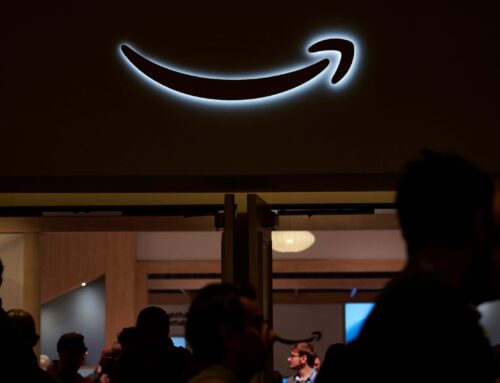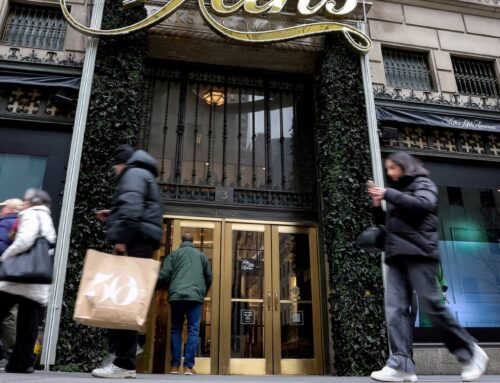Here’s How Much Trump’s Biggest Billionaire Donors Lost Thanks To Tariffs
April 4, 2025
In Donald Trump’s global trade war, hardly anyone is safe—not even his richest donors. His top 10 billionaire bankrollers lost more than $10 billion Thursday as markets plunged in response to his wide-reaching tariff plans, unveiled the previous afternoon at a ceremony that Trump billed as “Liberation Day.”
Trump’s two biggest billionaire donors, Elon Musk and Miriam Adelson, lost the most, partially because they had the biggest fortunes to start but also because they both conduct significant business in China. Commerce secretary Howard Lutnick, whose businesses are sensitive to macroeconomic moves, took a beating as well. One person who did okay: the president himself, whose social media company fell less than 2% on a day that the broader market dropped 5%. It’s nice to be in charge.
Below, a rough accounting of how each of Trump’s top billionaire donors fared in the bloodbath, tracking changes in publicly traded stocks and, where possible, estimating hits to private companies based on the performance of peers in the market.
1. Elon Musk
Donations to pro-Trump super PACs: $359 million
Net worth: $378 billion
Losses after Liberation Day: Est. $8.7 billion
Tesla has been on a wild ride, rising 70% from the election to the inauguration, then losing 91% of that gain since Trump took office. Shares fell 5% Thursday after Trump announced a global trade war. It’s not hard to see why: Tesla has significant manufacturing facilities in the United States, but it sources thousands of parts from hundreds of suppliers all over the world. The company previously touted its factories in China and Germany for helping avoid tariffs in those markets.
2. Miriam Adelson & family
Donations to pro-Trump super PACs: $111 million
Net worth: $28.8 billion
Losses after Liberation Day: Est. $1 billion
Las Vegas Sands, the company that Adelson’s husband Sheldon (d. 2021) once led, is mostly an overseas operation, with massive casinos in Singapore and Macao, the only market in China with legalized gambling. Bad news for high rollers in Asia is bad news for Adelson’s business, which dropped 7% Thursday. The Macao casinos draw much of their clientele from mainland China, Japan and South Korea—all targets in Trump’s tariff war. Las Vegas Sands, which sold off its Vegas property in 2022, has some future plans to return to the United States, having purchased the Nassau Coliseum on New York’s Long Island in 2023 with the intention of developing a casino on the site. But that won’t do much good for now.
3. Richard and Elizabeth Uihlein
Donations to pro-Trump super PACs: $93 million
Net worth: $11.8 billion
Losses after Liberation Day: Est. $480 million
Industrial supplies businesses like Uline, which the Uihleins cofounded in 1980, are difficult to extricate from international markets. Lots of products come from overseas, even though some, like boxes, originate in the United States. After the supply chain disruptions of Covid-19 and the election of Joe Biden, Liz Uihlein offered a window into her worldview with a letter published in her company’s catalog. “America sorely needs a coherent, largely united trade policy,” she wrote. “If we don’t get this done, this century belongs to the Chinese.”
4. Diane Hendricks
Donations to pro-Trump super PACs: $26 million
Net worth: $21.9 billion
Losses after Liberation Day: Est. $650 million
The richest self-made woman in America owns privately held ABC Supply, one of the country’s largest building-supplies providers. Customers can expect prices to go up as Trump wages his trade war. The website for ABC Supply already has a list of suppliers who have hiked prices, many of which explicitly attributed the increases to earlier Trump tariffs. Higher prices generally mean fewer sales.
5. Isaac and Laura Perlmutter
Donations to pro-Trump super PACs: $25 million
Net worth: $4.7 billion
Losses after Liberation Day: Unclear
The chairman of Marvel Entertainment sold off his entire stake in Disney last year, according to the Wall Street Journal. That might have been good timing—the Mouse’s stock fell more than 9% on Thursday. If Perlmutter diversified into holdings that track the S&P 500, he’d be down a bit less than 5%, or roughly $240 million.
6. Linda McMahon
Donations to pro-Trump super PACs: $20 million
Net worth: $3.1 billion
Losses after Liberation Day: Est. $65 million
McMahon, recently confirmed as Trump’s education secretary, and her husband Vincent co-founded World Wrestling Entertainment and still owned some eight million shares of its parent company, TKO Group Holdings, at the end of 2024, when Forbes last examined their fortune. The global entertainment conglomerate boasts that 93% of its WWE and UFC fans are from outside the United States, an attribute that leaves it potentially exposed to global economic turmoil—and sure enough, TKO was down just over 5% on Thursday, slightly more than the S&P 500 and Dow.
7. Kelcy Warren
Donations to pro-Trump super PACs: $13 million
Net worth: $7.2 billion
Losses after Liberation Day: Est. $360 million
In the past, Warren’s pipeline company Energy Transfer has benefitted from Trump policies; its $3.8 billion Dakota Access project went ahead after an executive order smoothed its completion in 2017. But Trump’s latest tariffs pose a possible threat to any company that relies on the raw materials, like steel, that are critical to fossil fuel extraction and transport. “Tariff policy is impossible for us to predict and doesn’t have a clear goal,” one industry executive told the Dallas Federal Reserve Bank in a March survey. “We want more stability.” ET shares dropped by 6% on Thursday, driving down Warren’s net worth as well.
8. Howard Lutnick & family
Donations to pro-Trump super PACs: $11 million
Net worth: $3.1 billion
Losses after Liberation Day: Est. $270 million
Throughout the presidential campaign, Lutnick defended Trump’s tariff plans on television. His companies, however, offered a dimmer view in securities filings, warning that tariffs could dampen the country’s mood. Indeed, Lutnick’s publicly traded brokerage firm, BGC Group, dropped 5.5% on the news, while his real estate business fell 9%. Privately held investment bank Cantor Fitzgerald might have dropped more than 10% if it were publicly traded, judging by plunging stock prices of competitors.
9. Anthony Pratt
Donations to pro-Trump super PACs: $10 million
Net worth: $8 billion
Losses after Liberation Day: Est. $270 million
Pratt’s privately owned corrugated cardboard and recycling empire helped him befriend Donald Trump early on in his first term, during which he pledged $2 billion in U.S.-based investment to a crowd with the president in the front row. Once one of the richest people in Australia, Pratt has fully acclimated to the United States, even chipping in plenty to American politics. Georgia-based Pratt Industries’ biggest customers are food and beverage companies, though, and American agricultural exports could be hit hard by retaliatory tariffs applied by other countries.
10. Paul Singer
Donations to pro-Trump super PACs: $8 million
Net worth: $6.2 billion
Losses after Liberation Day: Unclear
Singer told an Aspen crowd in June 2016 that Trump’s trade policies could cause a “widespread global depression.” He warmed up to the president, but it’s unclear how hard Thursday’s selloff hit him. Most of Singer’s wealth appears to be locked up in opaque funds. Market crashes don’t tend to be good for investors.
Methodology note: Using Federal Election Commission data, Forbes examined all contributions over $10,000 to super PACs that spent over $1 million backing Trump in 2024. Donation figures may not include all contributions from the individuals listed. Net worth figures and losses are estimated.
Search
RECENT PRESS RELEASES
Related Post


